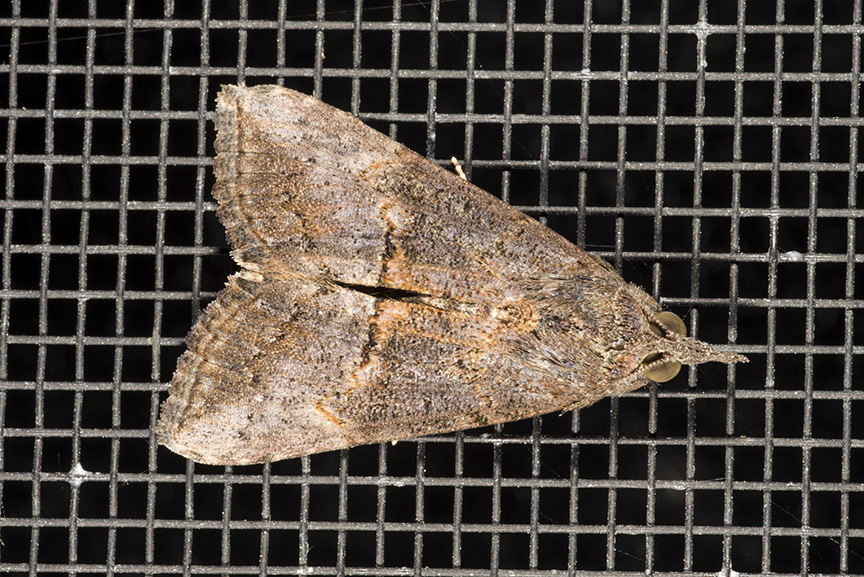
Most likely you have seen some black moths flying around farms, homes, and yards, especially to lights at night.

Most likely you have seen some black moths flying around farms, homes, and yards, especially to lights at night.
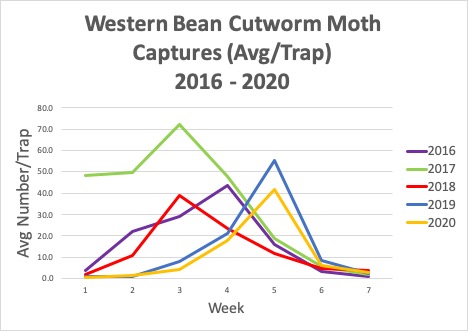
Tracking the western bean cutworm moth flight wouldn’t be possible without the many pheromone trap cooperators in our network, see following “Western Bean Cutworm Pheromone Trap Report.”
2020 Western Bean Cutworm Pheromone Trap Report
2020 Western Bean Cutworm Pheromone Trap Report

Much of the corn has pollinated throughout the state, but there are the late-planted fields that have yet to do so. Those are the fields that potentially act as a “trap crop” for various insect pests as they look for an excellent protein source…pollen. One particular insect, known by some producers as silk beetles, is the western corn rootworm beetle. In most years, this is the time for the peak number of beetles present in the state. In fact, for research trials we deliberately plant corn late the year before in an attempt to lure pollen-feeding female beetles into the crop so there will be plenty of eggs in second year corn. However, beetle numbers are much lower than they used to be several years ago. Because of this, some producers have let their guard down, only to later regret their decision to not protect their corn from larval damage.[Read More…]
2020 Western Bean Cutworm Pheromone Trap Report
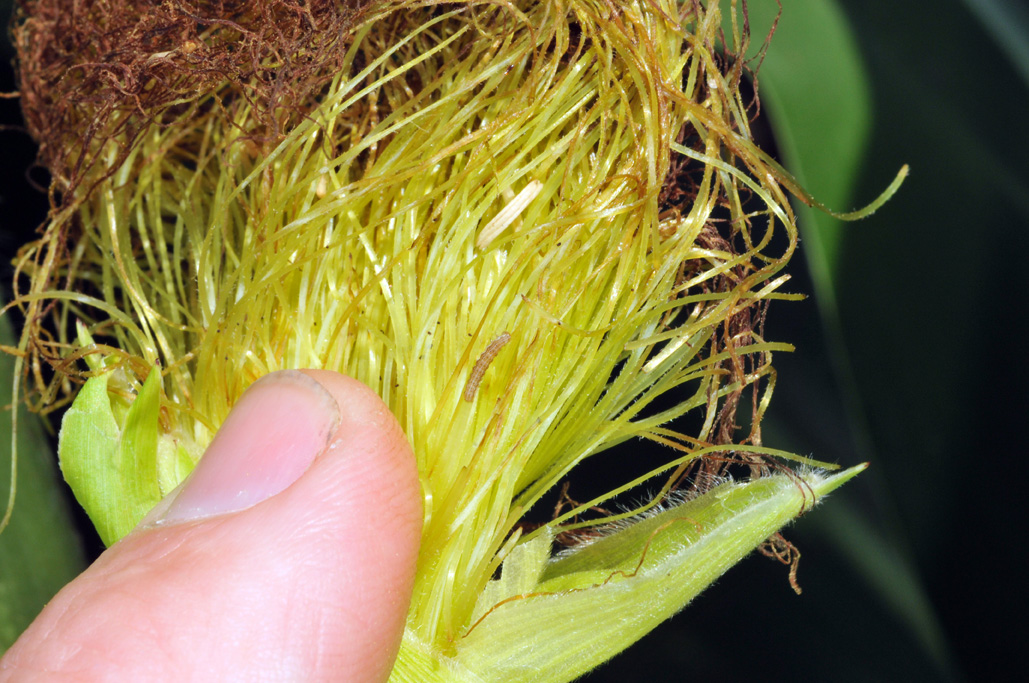
The vast majority of cornfields in the northwestern counties of Indiana have reached or have passed pollination.
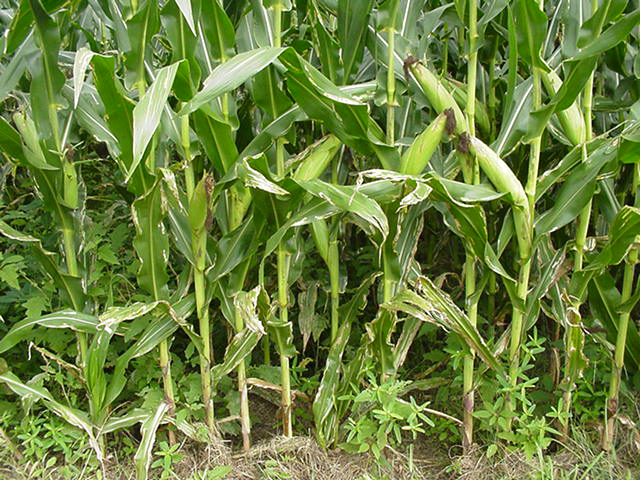
Corn blotch leafminer, Agromyza parvicornis, is a leaf-feeding insect normally considered an “occasional or non-economic” pest.
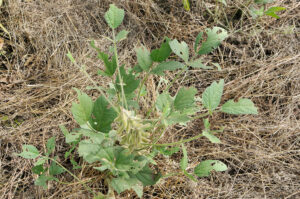
Reports of grasshoppers within fields have been received. The pictures and videos included with the emails showed numerous grasshopper nymphs severely defoliating soybean that were planted into a standing cereal rye cover crop. The soybean plants were delayed in growth, as they were shaded by the dying rye. Grasshoppers, as the name suggests, love feeding on a range of grasses but are certainly not limited to this group of plants.
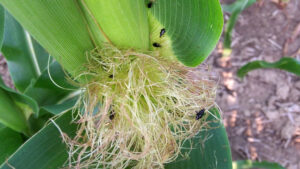
When weed control is delayed in fields, previously unseen insects become nuisance pests for the growing crop. This week, agronomists in central and northeastern Indiana, sent pictures with the “What is this bug?” question. We’ve had similar encounters with the redheaded flea beetle in past years.
© 2024 Purdue University | An equal access/equal opportunity university | Copyright Complaints | Maintained by Pest&Crop newsletter
If you have trouble accessing this page because of a disability, please contact Pest&Crop newsletter at luck@purdue.edu.